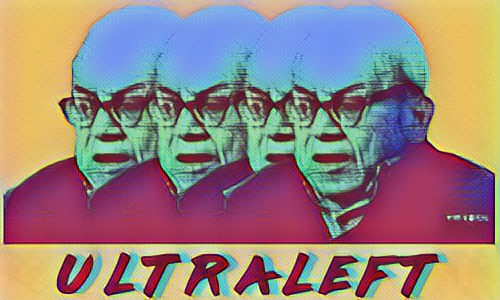Eco-Communalism: Political Philosophy of Deep Ecology
Eco-Communalism
Eco-communalism is an environmental philosophy based on ideals of simple living, self-sufficiency, sustainability, and local economies. Eco-communalists envision a future in which the economic system of capitalism is replaced with a global web of economically interdependent and interconnected small local communes. Decentralized government, a focus on agriculture, biodiversity, and green economics form the basis of eco-communalism.
Eco-communalism finds its roots in a diverse set of ideologies. These include the pastoral reaction to industrialization of William Morris; the Small Is Beautiful twentieth century philosophy of E.F. Schumacher; and the traditionalism of Gandhi.
Eco-communalism is an ideology merging aspects of socialism with that of green politics, ecology and alter-globalization. Eco-communalist generally believe that the expansion of the capitalist system is the cause of social exclusion, poverty, war and environmental degradation through globalization and imperialism, under the supervision of repressive states and transnational structures. Eco-communalist advocate dismantling capitalism, focusing on common ownership of the means of production by freely associated producers, and restoring the commons.
Eco-communalism usually refers to a system that integrates communal ownership and federations of highly localized independent communities. Murray Bookchin, defines the communalist political philosophy that he developed as "a theory of government or a system of government in which independent communes participate in a federation", as well as "the principles and practice of communal ownership". The term 'government' in this case does not imply acceptance of a state or top-down hierarchy.
The Philosophy of Deep Ecology
Eco-communalism is the political expression of the environmental philosophy of Deep Ecology, which promotes the inherent worth of living beings regardless of their instrumental utility to human needs, plus a restructuring of modern human societies in accordance with such ideas.
Deep ecology argues that the natural world is a subtle balance of complex inter-relationships in which the existence of organisms is dependent on the existence of others within ecosystems. Human interference with or destruction of the natural world poses a threat therefore not only to humans but to all organisms constituting the natural order.
Deep ecology's core principle is the belief that the living environment as a whole should be respected and regarded as having certain basic moral and legal rights to live and flourish, independent of its instrumental benefits for human use. Deep ecology is often framed in terms of the idea of a much broader sociality; it recognizes diverse communities of life on Earth that are composed not only through biotic factors but also, where applicable, through ethical relations, that is, the valuing of other beings as more than just resources. It describes itself as "deep" because it regards itself as looking more deeply into the actual reality of humanity's relationship with the natural world arriving at philosophically more profound conclusions than that of the prevailing view of ecology as a branch of biology.
The movement does not subscribe to anthropocentric environmentalism, since deep ecology is grounded in a quite different set of philosophical assumptions. Deep ecology takes a more holistic view of the world human beings live in and seeks to apply to life the understanding that the separate parts of the ecosystem (including humans) function as a whole. This philosophy provides a foundation for the environmental, ecological, and green movements and has fostered a new system of environmental ethics.
The Down Wing’s New Humanity
The Down Wing is represented by the philosophy of Deep Ecology. The Down Wing is also concerned with what the New Humanity will look like. This perspective seeks to shift the ethical boundaries of concern to the nonhuman world of the ecological. This is a decentering of humanity from its superiority amongst the other species. All of biological life as well as the natural systems that sustain life are considered of the same ethical footing. It is this interconnectivity of the web of life that makes us human, so we must see ourselves when we encounter the ecological other.




Comments
Post a Comment